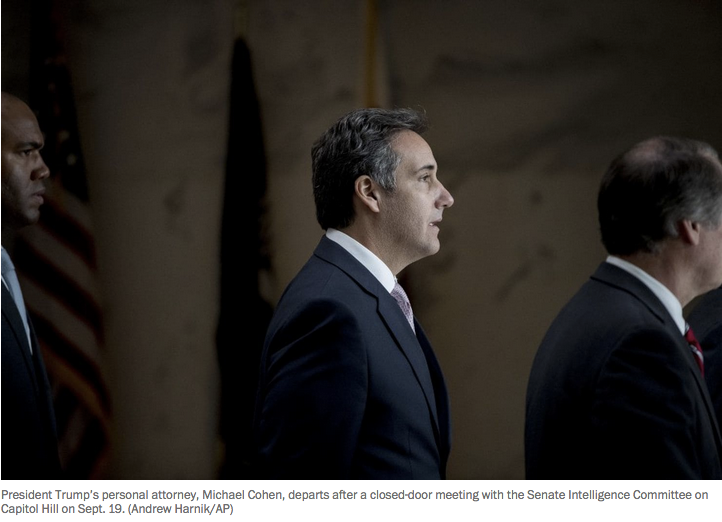. . .
There are specific rules that come into play before the U.S. attorney would be granted a subpoena, as outlined in the U.S. Attorneys’ Manual. A section titled “Searches of Premises of Subject Attorneys” details six additional safeguards to ensure that the Justice Department isn’t unjustly violating attorney-client privilege. It applies to subject attorneys — people who are “suspect[s], subject[s] or target[s]” of an investigation. That distinction was highlighted last week when The Post reported that Mueller had informed Trump that the president wasn’t a target of the investigation, but only a subject of it. “Prosecutors view someone as a subject when that person has engaged in conduct that is under investigation but there is not sufficient evidence to bring charges,” we wrote at that point. In other words, Trump wasn’t necessarily about to face charges, but he was under investigation. The same, it seems, applies now to Cohen.
To obtain that search warrant, then, the U.S. attorney would have had to meet six conditions, according to the manual.
- Before obtaining a search warrant, investigators had to try to obtain the evidence in another way, such as by subpoena.
- The authorization for the warrant had to come from either the U.S. attorney or an assistant attorney general. (Rosenstein is deputy attorney general, a higher position than assistant attorney general.)
- The prosecutor had to confer with the criminal division of the department before seeking the warrant.
- The team conducting the search had to “employ adequate precautions” to ensure that they weren’t improperly viewing privileged communications between Cohen and his clients.
- The search team would have included a “privilege team,” including lawyers and agents not working the case, which would work to ensure that investigators conducting the search didn’t see privileged communications.
- The investigators had to develop a review process for the seized material.




